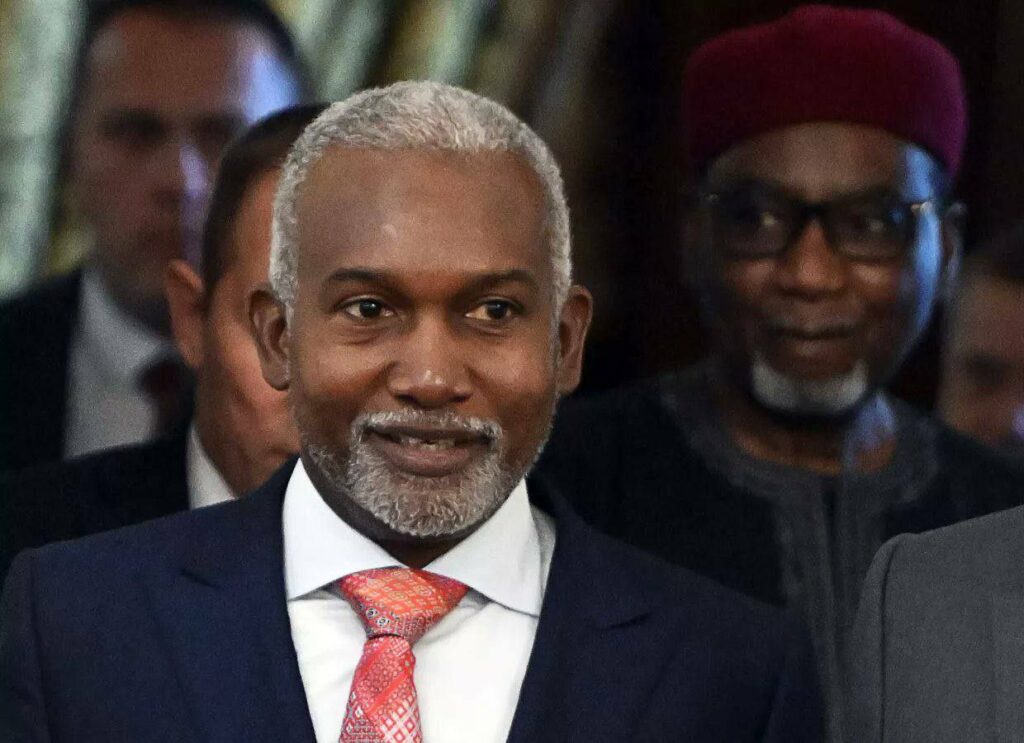At the Reuters NEXT Gulf Summit, Nigeria’s Foreign Minister Yusuf Maitama Tuggar in a question and answer session shared a spirited defense of Africa’s economic autonomy, warning that the continent must resist being boxed into ideological or transactional alliances as global power blocs realign.
In a wide-ranging conversation that spanned trade, geopolitics, migration, energy, and investment, Tuggar set out Nigeria’s foreign policy posture in the Tinubu era, anchored on what he called “strategic autonomy,” a worldview that seeks partners, not patrons.
The discussion opened with a pointed question on former U.S. President Donald Trump’s approach to Africa, including tariffs that crippled AGOA’s duty-free benefits and aid cuts that disrupted health programs such as HIV intervention. Tuggar, composed and measured, rejected the idea that America or Trump “does not care about Africa,” but argued that Washington’s sweeping tariff posture has placed some African economies under undue pressure. Nigeria, he said, is less vulnerable than most.
With a population of 230 million and a vast internal market, Tuggar maintained that Nigeria has “scale, talent, and absorptive capacity” that smaller African economies do not. It was an important distinction that he used to justify Nigeria’s refusal to be cornered by any global power. “Our relationships are not based on ideology,” he told the audience. “They are based on interests, our national interests first. We will trade with the U.S., with China, with Brazil, with India. This is a multipolar world.”
Pressed on whether such a non-aligned stance can withstand Trump’s famously transactional style, Tuggar drew a broader map of global competition over resources. Nigeria, he reminded the audience, holds critical minerals, vast rare-earth prospects, and 210 trillion cubic feet of natural gas. What Africa needs, he argued, is not extractive interest but respectful partnership. He criticized what he called a “Minecraft approach to Africa,” a global scramble for oil, gas, and minerals without regard for development. If Africa fails to grow, he warned, the world will continue to face migration pressures and instability. “No country survives in isolation,” he said. “It is in everyone’s interest that Africa develops.”
The conversation turned tense when U.S. deportation diplomacy was raised. While countries like Ghana have complied and reportedly earned visa concessions, Nigeria has taken a firmer stance. Tuggar was blunt: “That ship has sailed. We will not take other nationals under duress. We are not short of people.” With Nigeria’s population projected to reach 400 million in 25 years, he said the focus is on job creation at home, starting with agriculture, manufacturing, infrastructure, and the formalization of the informal economy.
On China, Tuggar dismissed the notion that Nigeria is drifting into Beijing’s orbit. Yes, China’s Belt and Road Initiative has delivered value, he said, but Nigeria is “not a child.” The country, he emphasized, is simultaneously deepening cooperation with Europe through Global Gateway while pursuing ties with India, Brazil, and the U.S. “We know our interests, and we have the laws and frameworks to protect them,” he said.
When challenged on Nigeria’s unreliable power supply, a key barrier to AI investment and data center ambitions, Tuggar argued that foreign investment would not worsen the problem but help fix it. With a new Electricity Act opening the sector and new pipelines under construction, he said Nigeria is pushing a dual strategy of gas and renewables. “Investors will generate the power they need, and it will also strengthen domestic supply.”
The minister concluded with two assurances: tax reform is the next major pillar of Nigeria’s economic overhaul, and foreign investors will be able to repatriate funds. The FX crisis that rattled markets, he insisted, has eased, and the exchange rate is stabilizing.
As he left the stage, Tuggar’s message was unmistakable. Nigeria is done playing junior partner. In a world tilting toward fragmentation, Abuja intends to choose its friends without being owned by any of them. “Strategic autonomy,” he said, “is not a slogan. It is the only path for a continent that must rise on its own terms.”










